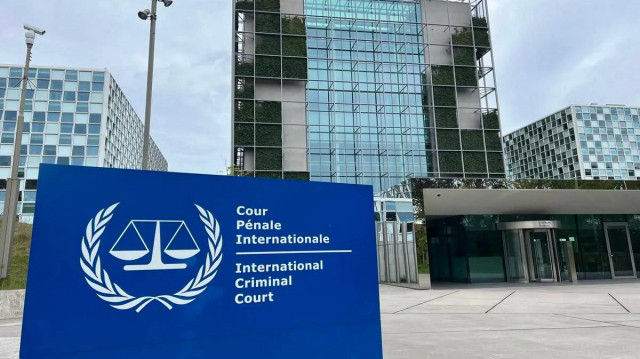

File photo
Craig Mokhiber stresses that all states party to Rome Statute are legally bound to arrest individuals with ICC warrants, dismissing claims of immunity and exceptions
States cannot avoid their legal obligations under the Rome Statute to implement International Criminal Court (ICC) decisions, including the arrest of individuals facing warrants, a former UN official said, expressing concern over some Western countries attempting to skirt their responsibilities under pressure from the US.
“For 77 years, Israel has enjoyed unbroken impunity for a chain of horrific international crimes,” Craig Mokhiber, former director of the New York Office of the UN High Commissioner for Human Rights, told Anadolu.
He believes that the ICC's action, as well as the International Court of Justice's (ICJ) ongoing genocide case against Israel, represents a significant breach in this longstanding pattern.
He emphasized the challenges faced by international justice mechanisms, particularly the ICC, noting that the court has operated under intense pressure, with opposition from powerful Western states, including the US, and even alleged interference by Israeli intelligence.
Despite these obstacles, the arrest warrants indicate that the international legal system "has lived to fight another day."
- Compliance and obstacles
Mokhiber underscored the obligation of the Rome Statute's 124 state parties to comply with the ICC's arrest warrants, including detaining high-profile individuals like Israeli Prime Minister Benjamin Netanyahu and former Defense Minister Yoav Gallant if they enter their territories.
However, he acknowledged the difficulties that states face in avoiding compliance when pressured by countries such as the United States.
“The US has this arrogant confidence that it is above the law,” Mokhiber said, criticizing its efforts to obstruct justice.
He also expressed concern over some Western countries attempting to exploit legal loopholes to evade their responsibilities under the Rome Statute.
The former UN official dismissed claims of immunity for Israeli leaders, stressing, “The Rome Statute is clear under Article 27 that there are no immunities in such cases.”
States that use distorted interpretations to avoid compliance endanger the international legal system, he warned.
- Broader international failures
When asked about the international system's response, Mokhiber criticized various UN agencies for failing to act decisively.
He highlighted the Security Council's paralysis due to the US veto, which has shielded Israel from accountability.
“The US is complicit in the genocide,” Mokhiber asserted, citing its financial, military, and diplomatic support for Israel during the ongoing crisis.
He noted that, while the UN General Assembly has taken some steps, such as adopting resolutions and supporting ICJ recommendations, it has not moved quickly enough to address the severity of the situation on the ground.
Mokhiber called for more decisive measures, such as economic sanctions, arms embargoes, and even the suspension of Israel's participation in UN bodies, similar to those used against apartheid South Africa.
- The path forward
Mokhiber expressed optimism about the global demand for justice, citing the role of civil society and international human rights mechanisms. “The ICC and ICJ are under immense pressure, but they are also backed by people around the world who are rallying for justice,” he said.
Drawing parallels to the anti-apartheid movement, he stressed the importance of isolating regimes that violate human rights.
“Expelling Israel from the General Assembly's mechanisms could be a critical step toward ending its ethno-nationalist and apartheid policies,” he concluded.
As the ICC and ICJ proceedings progress, Mokhiber's insights underline both the promise and the fragility of international law in holding states accountable for crimes against humanity.
Since Oct. 7 of last year, Israel has launched a large-scale ground operation in northern Gaza, claiming to prevent the Palestinian resistance group Hamas from regrouping. Palestinians, however, accuse Israel of seeking to occupy the area and forcibly displace its residents.
Since then, almost no humanitarian aid, including food, medicine, and fuel, has been allowed into the area, leaving most of the population there – currently estimated at 80,000 – on the verge of famine.
Overall, the Israeli onslaught that began after a Hamas attack on Oct. 7, 2023, has killed more than 44,400 people in Gaza, and the enclave is now uninhabitable.
On Nov. 21, the International Criminal Court (ICC) issued arrest warrants for Israeli Prime Minister Benjamin Netanyahu and former Defense Minister Yoav Gallant for war crimes and crimes against humanity in Gaza.
Israel also faces a genocide case at the International Court of Justice for its deadly war on Gaza.
#Craig Mokhiber
#ICC
#ICJ
#UN
